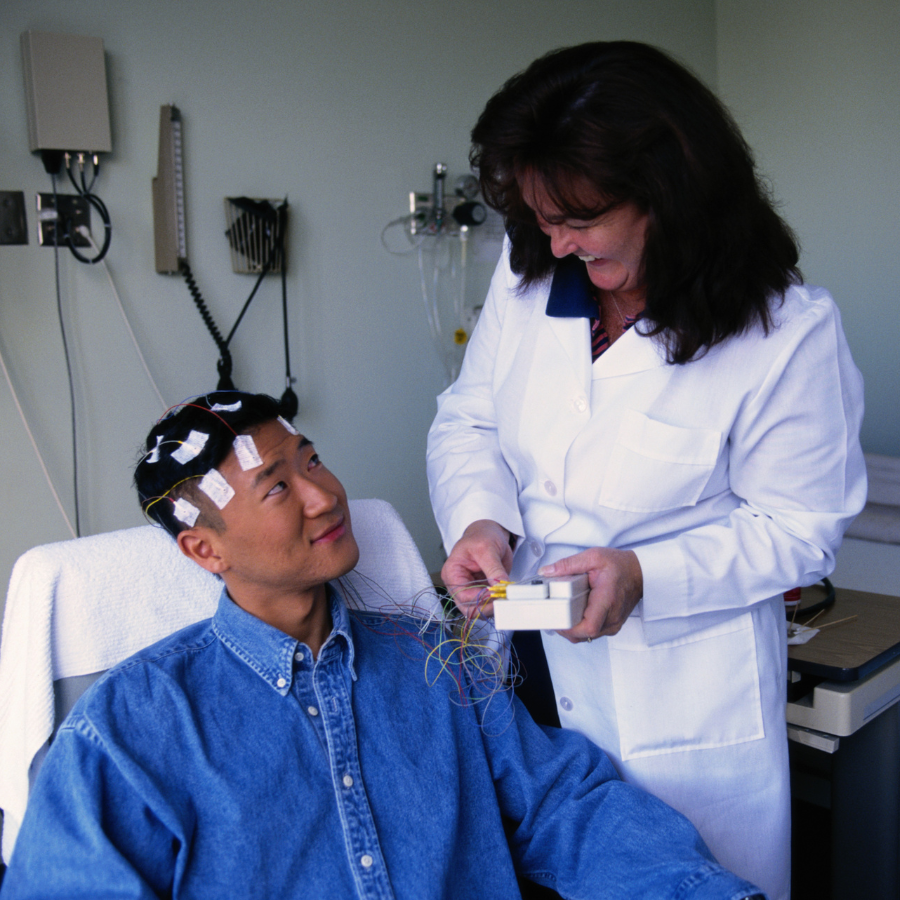Epilepsy is a chronic neurological disorder characterized by recurrent seizures. A seizure is a sudden surge of electrical activity in the brain that can cause changes in behavior, sensations, and consciousness.
Seizures can vary from brief periods of abnormal behavior to long periods of unconsciousness. Epilepsy can occur at any age, but it is most commonly diagnosed in children and adolescents. There are many different types of seizures, and they can be classified based on their duration, frequency, and severity.
In the United States, it is estimated that 3 million adults and 470,000 children have epilepsy. The disorder can develop at any age, but it is most commonly diagnosed in children and young adults.
While the exact cause of epilepsy is unknown, there are several factors that may increase your risk of developing the condition.
Family history: If you have a parent or sibling with epilepsy, your risk increases four- to eight-fold.
Traumatic brain injuries, stroke, or tumors
Health conditions, such as Alzheimer’s disease, cerebral palsy, and autism spectrum disorder, are also associated with an increased risk for epilepsy.
If you have any of these risk factors, it is important to talk to your doctor about your risks and what you can do to reduce them.
The most common symptoms of epilepsy are seizures. Seizures can vary in severity, from brief periods of unconsciousness or staring spells to violent convulsions. Other common symptoms of epilepsy include:
Changes in mood or behavior
Sleep problems
Sensation changes
Trouble with coordination
Temporary confusion
Fear, anxiety, or a feeling of deja vu
Diagnosis of epilepsy typically begins with a medical history and physical exam. If these tests are inconclusive, further testing may be necessary to confirm the diagnosis. This may include an electroencephalogram (EEG), which measures brain activity, or imaging tests such as MRI or CT scans. Once epilepsy has been diagnosed, treatment can begin.
Medication is the most common form of treatment for epilepsy. There are several different types of anti-epileptic drugs (AEDs) that can be used to treat the condition, and a patient may need to try several before finding one that worlds well for them. The goal of treatment is to reduce the frequency and severity of seizures, allowing the patient to live a normal, productive life. With proper care, many people with epilepsy are able to lead happy and fulfilling lives.
Some common epilepsy lifestyle remedies include getting regular exercise, avoiding triggers such as flashing lights or loud noises, and eating a healthy diet. Some people find that keeping a seizure diary can help them to identify triggers and develop strategies for managing their condition. In addition, many people with epilepsy find that stress-relief techniques such as yoga or meditation can help to lessen the frequency and severity of seizures. By working with a healthcare team and making lifestyle changes, people with epilepsy can live fulfilling lives.

If you have a question about a prescription transfer or ordering from NextRx, we’d love to hear from you.

This will close in 0 seconds